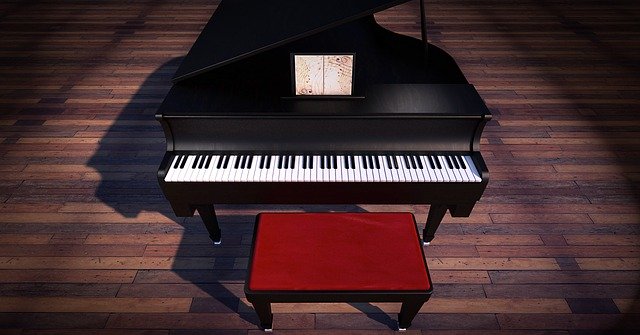
Once you start to think about buying a piano, or learning to play the instrument, lots of questions will probably crop up. Why do pianos have 88 keys? This is one of the main things you might wonder about. A lot of musicians just accept that this is the way it is. However, if you’re a new musician, you might ask more questions.
Though this is a perfectly legitimate question, it should really be rephrased as “why do most pianos have 88 keys?”
There are other options available. If you buy a digital piano, it is not uncommon to find models available in different sizes. Keyboards have even more varieties. You can find 88-key, 76-key, 61-key, 49-key, and even 25-key models without having to do too much searching. This is mainly for the purpose of keeping things portable.
Acoustic pianos may even be different in size. Some manufacturers provide 92-key pianos.
Why Do Pianos Have 88 Keys as Standard?
Steinway, one of the most respected piano manufacturers in the world (and one of the first) made the first 88-key piano back in the 1880s. This seemed to spread like wildfire and pretty soon it was industry standard.
Steinway is highly respected, and their pianos, though expensive, are fiercely sought-after.
The Steinway design that was adopted gives us seven octaves of keys, and under the lowest, there is a further B, a B flat and A. In total there are 52 white keys and 36 black keys to play sharp and flat notes.
Between this introduction in the 1800s and the 70’s, when keyboards really started to grow, the 88-key design is pretty much all that was available. If your family has a piano as an heirloom, it is likely to be 88-keys in size.
The Origin of 88 Keys
Not everyone realizes that the piano was actually preceded by the Harpsichord, and the piano was made as a way to upgrade the harpsichord. The first pianos had 49 keys, but the difference in the way they operated was the hammer mechanism that created the sound, and the damper mechanism that caused a more mellow sound.
As classical music evolved, people wanted more options, and a piano became the answer to playing two-handed. If you go to a classical music concert today, you will see pianists use the full range of their piano, across all seven octaves, to great effect.
Do You Need to Learn on an 88-Key Piano?
This is one of the linked questions that a lot of people have when they start out. Is an 88-key piano or keyboard necessary?
The answer is definitely “no”. The fact that every keyboard is just the repetition of the same pattern (octaves) getting progressively higher from left to right, means that a smaller keyboard is fine for learning. If you want to play some of the simpler songs here on our academy you don’t need to worry about having a big keyboard.
When the time comes to transition to a larger model, the feeling of playing a 61 or 76-key model will be the same. You will just have more range to the left and right.
The one caveat is to make sure you have a big enough digital piano to play two-handed. This usually means bass notes on the left and chords on the right or chords on the left and melody on the right. 61 or 76 keys are plenty big enough for this.
Let your friends know about us.
Leave a Reply
You must be logged in to post a comment.










Remarkable issues here. I am very satisfied to look your post.
Thank you so much and I’m having a look forward to touch you.
Will you please drop me a e-mail?
Hey There. I found your blog using msn. This is a really well written article.
I’ll be sure to bookmark it and return to read more of your useful information.
Thanks for the post. I will definitely comeback.
Thank you!
What’s up, the whole thing is going nicely here and
ofcourse every one is sharing data, that’s in fact good, keep up writing.